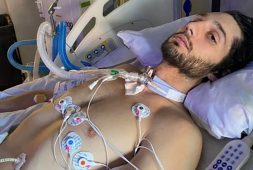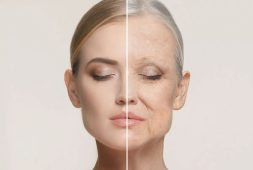
The pandemic has pretty much taken over the world. Ever since economies had to shut down, health experts from all over have worked nonstop to find a cure. While we’ve certainly come a long way from last year, much has yet to be learned and discovered about this flu strain.
At this point in time, people are still worry to go about their normal lives. You’d be hard-pressed to find an individual walking down the street without a mask on. While people are scrambling to get vaccinated, what is there to know? Is there more to Covid-19 than meets the eye?
The Basic Facts
When it comes to Covid-19, here are some of the studies, researches, and findings that are still underway:
- Experts have yet a lot to learn about the likelihood that people who have had COVID-19 can contract SARS-CoV-2 once more.
- Scientists at the University of Oxford in the United Kingdom have announced a human challenge trial to gather solid, precise, and specific data that will provide a better understanding of how reinfection from the disease works.
- Under carefully controlled conditions and for research purposes, scientists will reinfect the participants in the study with the original variant of SARS-CoV-2.
As mentioned earlier, there are things that have yet to be learned. Covid-19 is still a mystery, and while many findings have come to light in the recent years, experts still don’t know much about what happens to those who have recovered from COVID-19 and who have been exposed to the SARS-CoV-2 virus once more. Is it worse for them? Do they have the right antibodies for it?
Because much of what’s needed to know is still left in the dark, scientists at the University of Oxford have announced a human challenge trial. They will look into investigating how people will respond to the second SARS-CoV-2 infection and how their immune systems will react to it should this happen again.
According to Shobana Balasingam, the vaccines senior research advisor at the Wellcome Trust (the organization funding the trial), “There are still many unknowns surrounding this virus, and human infections studies can enable us to learn a lot about COVID-19.” She continues, “This study has the potential to transform our understanding by providing high quality data on how our immune system responds to a second infection with this virus.”
The trial will come in two phases. The first phase begins this month while the second phase is expected to start in the summer.
The Value of Challenge Studies
Helen McShane is a professor of vaccinology at the Department of Paediatrics at the University of Oxford. She is also the chief investigator of the study. She says that there are values that come with challenge studies. She explains, “Challenge studies tell us things that other studies cannot because, unlike natural infection, they are tightly controlled. When we reinfect these participants, we will know exactly how their immune system has reacted to the first COVID infection, exactly when the second infection occurs, and exactly how much virus they got. As well as enhancing our basic understanding, this may help us to design tests that can accurately predict whether people are protected.”
Prof. Johnathan Stoye may not be involved in the investigation. However, he does have sufficient knowledge about it. He is a virologist from the Francis Crick Institute in London, UK. He does believe in the importance of such research. He explained to Medical News Today, “This is an extremely interesting and important area.”
He goes into further explanation by saying, “Well-documented cases of reinfection can have different consequences. There are clearly many open questions that probably can only be answered by approaches along these lines of this study.” Hence, he commends the “bravery of the volunteers and medical professionals involved.” After all, while this may be difficult and dangerous, it’s also just as important to know more for the good of everyone.
Phase 1
The first phase of the research and investigation on reinfection will determine the minimum dose of SARS-CoV-2 that causes reinfection. During this time, the researchers will make use of the original variant of SARS-CoV-2 that came from Wuhan, China.
There will be up to 64 healthy volunteers for this and the people will be in 18 to 30 years age bracket. All of them had previously contracted the SARS-CoV-2 virus. They should all be willing participants who know the parameters of the investigation.
Before reinfecting the volunteers, the investigators will ensure that all of them are physically and mentally fit. They should also be considered completely recovered from their first infection in order to minimize their risk.
The participants will be divided into two groups. The first group will consist of 24 individuals. They will be increasingly exposed to the amounts of the SARS-CoV-2 virus. This is to establish the dosing threshold at which reinfection occurs. After this has been made, the experts in the study will then administer the optimal dose to the second group.
The participants of the study will be isolated in a specially designed hospital suite. They will be in their rooms for at least 17 days.The expert team will be responsible for their care and recuperation as they will administer a range of medical tests, including CT lung imaging and MRI heart scans.
The individuals who have been reinfected will be able to leave the hospital suite when and only when they are no longer with the infection and can no longer infect the people around them. If any of them develops symptoms of COVID-19, they will immediately be administered monoclonal antibodies.
Once the participants leave the facilities, they will take part in a minimum of eight follow-up examinations. This will happen over the course of a year.
Speaking to MNT, Prof. Stoye took note of vital questions that might come up during the first phase. These questions may center around the “optimum dose.” According to him, questions such as ”Would [this dose] be different in different people depending on their genetic background/health status/severity of previous infection/time since initial infection?” He further explains, “If [it] is, what impact will it have on the proposed phase 2 studies?”
Phase 2
The second phase according to Prof. McShane, “we will explore two different things. First, we will define very carefully the baseline immune response in the volunteers before we infect them.”
With the integral information, Prof. McShane goes on to explain, “We will then infect them with the dose of virus chosen from the first study and measure how much virus we can detect after infection.” In his words, “We will then be able to understand what kind of immune responses protect against reinfection. Second, we will measure the immune response at several time points after infection so we can understand what immune response is generated by the virus.”
What the Researchers Hope to Uncover
The study will work with precise information about the infection timeline. It is in their hope that the data that they will come up with will provide valuable information for the future of Covid-19 and for the general population.
Christopher Coleman, is an assistant professor of infection immunology at the University of Nottingham in the UK. He is not involved in the investigation but told MNT, “The second phase will really tell us what is happening upon reinfection in the immune system.”
Coleman states, “We can tell if the immune system is acting as though the infection is still the first one or is responding to a virus it already recognizes (and that can be good or bad, depending on the exact nature of the response).”
Balasingam, from the Wellcome Trust states, “Medically, this could also help us understand which parts of the immune response are critical for protection against the virus — either to test a vaccine or for drugs that may help that specific response.” He also concludes, “The findings could have important implications for how we handle COVID-19 in the future and inform not just vaccine development but also research into the range of effective treatments that are also urgently needed.”
In Balasingam’s words, “Keeping up with the pace of scientific research and development through crucial studies such as this remain the only way we will truly get ahead of this pandemic and to bring it under control.”



